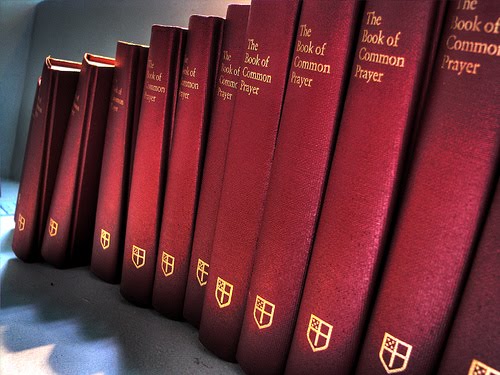An announcement from the Task Force on Liturgical and Prayer Book Revision seeks input from worshiping communities and individuals as it works out its mandate from GC2018. Resolution A068 created the Task Force to engage in “the ongoing work of liturgical and Prayer Book revision for the future of God’s mission through the Episcopal branch of the Jesus movement,” using “a dynamic process for discerning common worship, engaging all the baptized, while practicing accountability to The Episcopal Church.”
A new website is designed to foster that dynamic process. It also serves as a repository of existing, approved liturgies. Yesterday’s announcement follows:
On New Website, Task Force Seeks Participation in Liturgical Revision
[December 16, 2019] A new website launched today at EpiscopalCommonPrayer.org provides Episcopalians with opportunities to participate in the liturgical revision called for by Resolution A068 of the 2018 General Convention. The site is available in English and Spanish.
Developed by the Task Force on Liturgical and Prayer Book Revision, the website includes draft documents that outline plans and principles to guide work on new liturgical texts. It also serves as a clearinghouse of all liturgies already approved for use by General Convention.
“We have posted our first three draft documents on the site, and we hope that Episcopalians from all parts of the church will read and comment on them,” said the Rev. Dr. Nina Ranadive Pooley, vice-chair of the task force from the Diocese of Maine. The documents include an outline of the task force’s direction for liturgical and prayer book revision; principles for new liturgical texts that are intended to assist diocesan liturgical commissions; and guidelines, developed with the Standing Commission on Liturgy and Music, for expansive and inclusive language in liturgy.
“General Convention heard great longing for new liturgical texts that include inclusive language about humanity and expansive language for God,” said the Rev. Deon Johnson, a member of the task force from the Diocese of Michigan. “Creating liturgy with expansive language isn’t just about replacing pronouns; it is a prayerful process that expands our ideas both about God and God’s relationship with all humanity. We hope that our work advances that work across the church.”
The website includes a submission page designed to collect feedback on the draft documents, ideas for liturgical revision, and liturgies that have been developed by dioceses and local congregations.
“General Convention called for bishops to ‘engage worshiping communities in experimentation and the creation of alternative texts,’” said the Rt. Rev. J. Neil Alexander, dean of the School of Theology at Sewanee and chair of the commission. “We want the richness of these liturgical experiments born out of the needs of local communities to inform our work toward liturgical revision.”
Before its next meeting in April 2020, members of the task force request that bishops, liturgical officers, and diocesan liturgical commissions study both the draft documents it has produced and the provisions of Resolution 2018-A068 and respond via the website. The site contains a list of diocesan liturgical commissions; those not listed can be added by emailing the task force at tflpbr@episcopalchurch.org.

